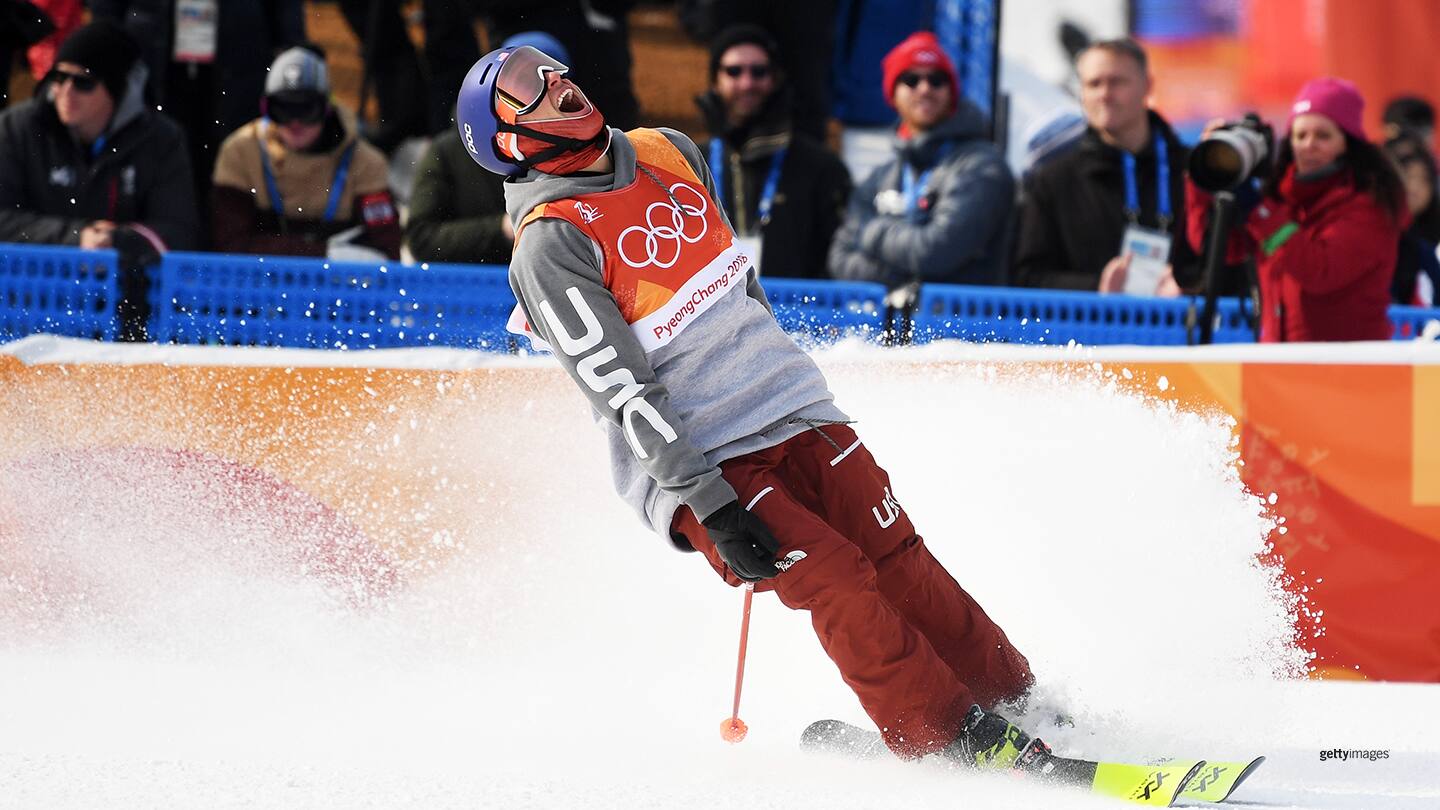
Nick Goepper Has The Tricks To Win In Beijing, Now He Just Needs His Spot On Team USA
by Joanne C. Gerstner

Nick Goepper celebrates after the men's freeski slopestyle final at the Toyota U.S. Grand Prix at Mammoth Mountain on Jan. 9, 2022 in Mammoth, California.
Nick Goepper has been there, done that when it comes to the Olympics.
Already a two-time Olympian in slopestyle skiing, Goepper has two medals to show for it. Now he wants to be part of a third Olympic Winter Games with Team USA, this time in Beijing, where he believes his preparation and experience have him prepped for another potential medal run.
He just has to get there first.
Alex Hall, Colby Stevenson and Mac Forehand have locked up the first three spots on the U.S. roster for slopestyle and big air skiing. One slot remains. Barring some American slopestyler putting up an epic performance at this weekend’s world cup in Font Romeu, France, Goepper should be in good position to claim the last spot via coaches’ decision.
“I’m just going to wait and be patient, all I can really do, because I know I have put down the preparation and runs to be successful if I get picked for Beijing,” said Goepper, a native of Lawrenceburg, Indiana. “I feel very similar to how I did going into the last two Olympics; I had the tricks to win, and I believe I have the tricks to win this time around.
“It is really down to mindset and focus. I have that couple Olympics-worth of experience now. So I see this as lining up to be a really good month.”
Goepper was oh-so-close to locking up the coveted spot this past weekend. He finished second in the last qualifying event, the Toyota U.S. Grand Prix at Mammoth Mountain in California. Goepper led after the first run, and if he had stayed on top he would have clinched the Olympic spot. Instead his second run was not strong enough to hold off Hall, and Goepper finished second.
“I was thrilled with how I skied in Mammoth, because I was really focused,” Goepper, 27, said. “It reminded me of myself from 4-5 years ago, when I was also skiing really well. I was feeling just like that. Calm. Patient. It’s where you want to be. It’s amazing what happens when you are patient and trust yourself to do what you are supposed to do. I know that can sound boring. But I really understand now what needs to happen for me to get into that place. And I am doing it.”

Nick Goepper celebrates after his final run during the men's freeski slopestyle final at the Olympic Winter Games PyeongChang 2018 on Feb. 18, 2018 in Pyeongchang-gun, South Korea.
To get there, Goepper knew he needed to make his life simpler.
Trusting his mind and gut is part of the effort Goepper actively chose to make his life less complicated right now. He loves to snowmobile, for one. He realized his hobbies are fun, but they are not helping him stay in the best place for championship skiing.
He needed to make his world smaller, simpler and, frankly, more focused on this season and Beijing. So the snowmobile is parked, at least until March, and Goepper sees his discipline translating into stronger runs.
“You have to prioritize and then remove distractions, and in turn that helps make the way forward clearer,” Goepper said. “That’s what I did, and I know it is working.”
Maintaining an elite athletic career that takes place around the world has been a challenge for many athletes during the COVID-19 pandemic. Goepper said he has found a way to make all the changes and protocols work, with some of the new realities working well for his training and life.
“I know this sounds kind of odd — given that so many people have had so many difficult things going on all around us, just all the misfortune — but I have actually been really awesome with my experience,” Goepper said. “For our community, we’ve jumped through all the hoops to ski and train, but then we’d often find we’d get things at the mountain that we had to share before now all to ourselves. It was private, and that added to the experience.
“We also got to build relationships — real relationships — with people I didn’t have that with before. There were no distractions, and we were together, on the mountain, in a way that wasn’t a zoo like usual. We were locked together in a bubble, for like 1-2 weeks during trips, and we really spent quality time. That was special.”
Goepper said thinking about reaching a third Olympics is special, going beyond just wanting to win another medal. He won a bronze medal at the sport’s debut in 2014 and upgraded it to a silver medal four years later in PyeongChang. Getting the chance to head back to another Olympics, this time with even more experience, would make the intense competition less daunting, he said.
“The first time at the Olympics, your brain is going crazy, there is so much going on and you are just a ball of electricity: so excited, anxious, nervous,” he said. “Everything is so new and cool and awesome. The second time, like only half of your brain feels that way. You know what is going to happen and you are less overwhelmed by everything around you.
“So this time, I am going to be feeling even less stress. I maturely know what to do now, what’s best for me, and not get thrown off by all the craziness. It’s a good place to be.”
Joanne C. Gerstner has covered two Olympic Games and writes about sports regularly for the New York Times and other outlets. She has written for TeamUSA.org since 2009 as a freelance contributor on behalf of Red Line Editorial, Inc.